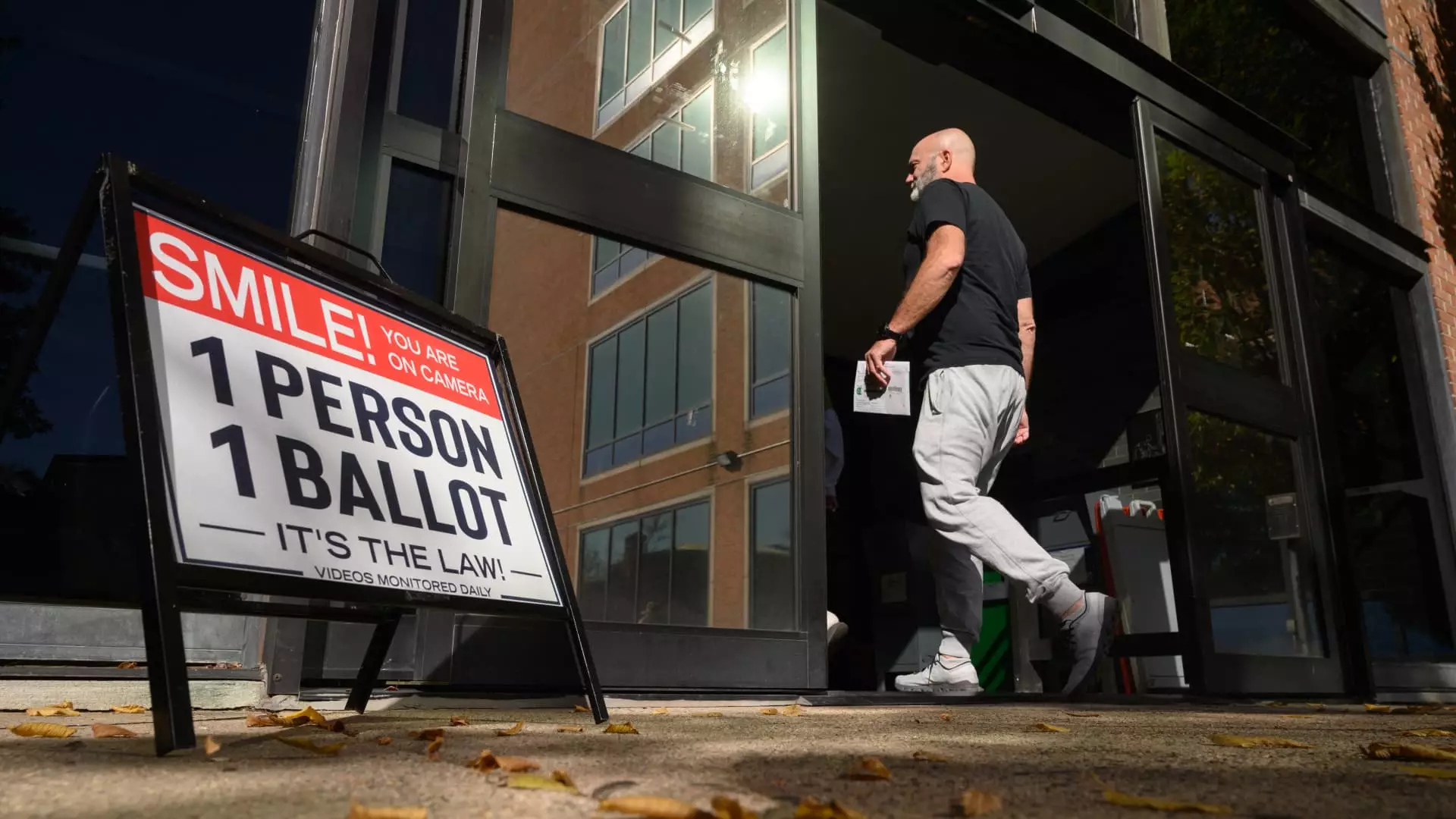On a consequential Friday, the Supreme Court delivered a significant blow to Republican aspirations regarding election protocols in Pennsylvania. The justices, with no noted dissent, opted not to suspend a ruling issued by the Pennsylvania Supreme Court that permits voters who submitted potentially defective mail-in ballots to cast a provisional in-person ballot. This ruling is especially pivotal as it navigates the troubled waters of election procedures and voter rights, underscoring an ongoing tension in American electoral politics.
Justice Samuel Alito, a member of the Supreme Court known for his conservative viewpoints, articulated that, while the issue at hand is one of “considerable importance,” the judicial body must refrain from intervening at this moment. Notably, he found support from fellow conservatives Clarence Thomas and Neil Gorsuch, indicating a general hesitance among the court’s right-leaning members to embroil themselves in the fray of state electoral rules. By choosing not to engage directly, the justices have, in essence, maintained the status quo while leaving room for potential future disputes to surface.
The roots of the case can be traced to the Democratic primary in Butler County, where two ballots — which were subsequently flagged — ignited this legal battle. The implications of the Supreme Court’s intervention, had they chosen to do so, could have extended far beyond these specific ballots, potentially impacting numerous voters in a state that has emerged as a crucial battleground in U.S. politics.
Pennsylvania’s history as a swing state adds another layer of complexity to the situation. The number of ballots affected by the court’s ruling could reach into the thousands, particularly if a significant number of voters experience similar issues during the forthcoming general election.
Despite the potential for confusion, many counties across Pennsylvania have been operating under a system in which provisional ballots can still be cast when mail-in ballots lack the appropriate secrecy envelopes. This existing practice suggests that even among different counties, there is inconsistency in how election rules are enacted, raising questions of fairness and uniformity in the voting process.
Republicans have consistently held that state laws are strict, asserting that any ballots failing to meet specific requirements must be discarded outright. Under this interpretation, ballots that lack a signature, are incorrectly dated, or miss many other stipulations would be considered invalid. Their legal argument hinges on a belief that voters should not be given opportunities to remedy issues that should explicitly disqualify their ballots.
The state of Pennsylvania itself has weighed in on the debate by filing a friend-of-the-court brief, encouraging the Supreme Court to refrain from interference. State officials argued that the ruling was not a radical departure from established practices but rather a common-sense approach that facilitates voter participation, especially in light of past challenges faced during elections.
At the same time, the legal debate surrounding election administration extends deeper into a constitutional quandary. The Pennsylvania Supreme Court’s decision raises questions regarding the separation of power, particularly regarding legislatures’ authority to dictate election rules. This legal friction harks back to a Supreme Court decision that rejected the “independent state legislature” theory—suggesting that legislative authority over elections is not absolute and can be restrained by state adjudications.
The Wider Political Landscape
This recent ruling is just one chapter in a broader narrative that encompasses voter access, the legitimacy of election procedures, and the ongoing discourse surrounding election integrity. The Republican National Committee’s engagement in numerous lawsuits leading up to the 2024 elections reveals a strategy focused on raising alarms about election fraud, despite a lack of substantive evidence. This tactic echoes the unfounded claims propagated by former President Donald Trump after the 2020 elections, setting the stage for an even more contentious electoral cycle.
The scenario surrounding the two Butler County voters, Faith Genser and Frank Matis, who brought the case forth after being denied the opportunity to have their mail-in ballots counted, exemplifies the real-world impact of electoral laws. Their pursuit of justice underscores the transformative potential of legal decisions concerning voter rights and participation.
Looking Ahead
As Pennsylvania approaches another election cycle, the ramifications of this latest ruling and the underlying legal disputes will be closely scrutinized. With the specter of a divisive political landscape looming, further litigation is likely just around the corner. The debates surrounding mail-in voting, election integrity, and voter accessibility will remain essential as both parties gear up for the pivotal 2024 elections.
Ultimately, how these legal and political dynamics unfold will shape the future of voting in Pennsylvania and potentially influence electoral practices across the nation, highlighting the delicate balance between maintaining election integrity and ensuring that every eligible voter’s voice is heard.


Leave a Reply